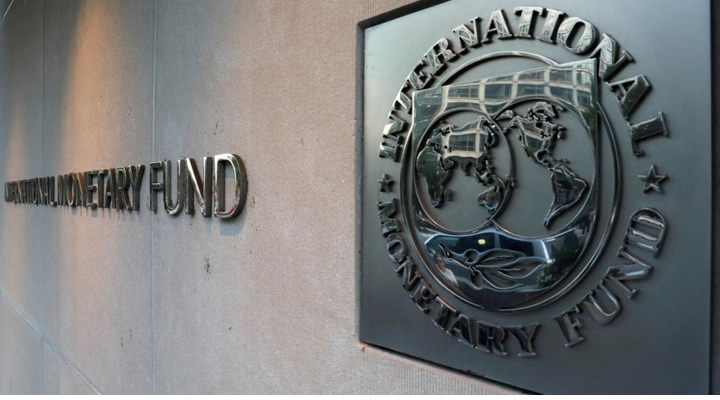
The International Monetary Fund has downgraded the growth rate in sub-Saharan Africa to 3.7 per cent in 2024.
This was indicated in the latest World Economic Outlook Update, which was released on Tuesday.
The IMF said the downward review of the growth outlook was on the back of the weaker-than-expected growth in Nigeria.
“The forecast for growth in sub-Saharan Africa is revised downward, mainly as a result of a 0.2 percentage point downward revision to the growth outlook in Nigeria amid weaker-than-expected activity in the first quarter of this year,” the IMF said.
In its April outlook, the IMF projected economic growth to rise to 3.8 per cent in 2024 from 3.4 per cent last year.
For Nigeria, the latest projection dropped to 3.1 per cent from the growth forecast of 3.3 per cent in 2024 issued in April.
For 2025, the IMF maintained Nigeria’s economic growth forecast at 3.0.
On the global stage, the growth was projected to be in line with the April 2024 World Economic Outlook forecast, at 3.2 per cent in 2024 and 3.3 per cent in 2025.
The fund said, “Services inflation is holding up progress on disinflation, which is complicating monetary policy normalisation. Upside risks to inflation have thus increased, raising the prospect of higher for even longer interest rates, in the context of escalating trade tensions and increased policy uncertainty. The policy mix should thus be sequenced carefully to achieve price stability and replenish diminished buffers.”
On the trade front, IMF said a recovery was in sight as world trade growth is expected to recover to about 3.25 per cent annually in 2024–25 (from quasi stagnation in 2023) and align with global GDP growth again.
“The uptick in the first quarter of this year is expected to moderate as manufacturing remains subdued. Although cross-border trade restrictions have surged, harming trade between geopolitically distant blocs, the global trade-to-GDP ratio is expected to remain stable in the projection” it stated.
It noted that global inflation would continue to decline, adding that in advanced economies, the revised forecast was for the pace of disinflation to slow in 2024 and 2025.
Nigerian inflation has accelerated to 34.19 per cent in June from 33.95 per cent in the prior month, according to the latest National Bureau of Statistics data.
The rate of increase was 2.31 per cent, which defied a three-month trend of steady decline and was higher than the rate recorded in May 2024 (2.14 per cent).
With the hike in the inflation figure, the Monetary Policy Committee of the Central Bank of Nigeria is likely to increase the monetary policy rate in its avowed stance to keep MPR high to tackle inflation.
On the global economy, the IMF explained, “Inflation in prices for services is now expected to be more persistent and commodity prices higher. However, the gradual cooling of labour markets, together with an expected decline in energy prices, should bring headline inflation back to target by the end of 2025.
“Inflation is expected to remain higher in emerging markets and developing economies (and to drop more slowly) than in advanced economies. However, partly thanks to falling energy prices, inflation is already close to pre-pandemic levels for the median emerging market and developing economy.”
